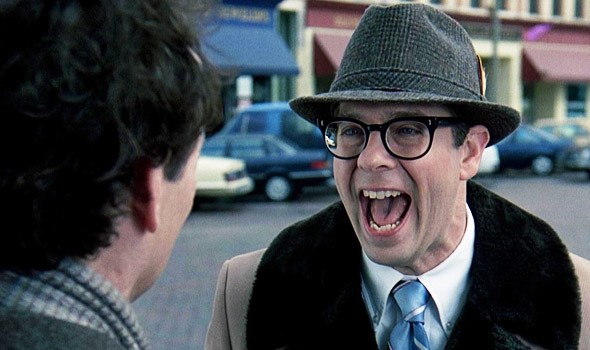How Much Would You Spend Each Month On Something You May Never Use

“Can we talk about insurance again?” Ben asked on Saturday while the toddler napped and I tried to soothe my frazzled nerves with newsprint. From the depths of the Real Estate section, I made the universally understood groaning noise of despair.
Just tell me when you’re ready, said Ben, and I unrolled myself from a ball and emerged into the sunlight and blinked balefully at him. Fine, I said. What do we need to discuss.
Insurance, he said. How much are we willing to spend each month on something we may never use.
The first number that popped into my head was thirty dollars, but that felt kind of paltry, so I nudged it up and said, in my best now can we stop talking about this voice, “Fifty bucks.”
“For both of us?”
“I don’t know. Do they give bulk discounts?”
“No,” he said, and it was his turn to look balefully at me. “I know you believe in insurance. You wrote an article about it for the Billfold!”
“I write two or three things a day every day!” I said. “You expect me to stand by all of them?”
We both took deep breaths and prayed silently to the gods of our choice, which is key to maintaining a lasting relationship, and then began again.
“$50 a month seems like a lot to me,” he said. “And what about Disability Insurance? Isn’t that important, maybe even more important than Life?”
Survey says maybe. USNews for example classes Disability among the kinds of insurance you might need, as opposed to Life, which you almost certainly need. Business Insider, by contrast, recommends buying some in your twenties and continuing to have it until you hit 65:
Disability insurance (when you get a job). Disability insurance is meant to provide income should you be disabled and unable to work. It’s estimated by the Social Security Administration that over 25% of today’s 20-year-olds will be disabled before retirement.
If you’re relying on your income to live, you should have disability insurance. Most people who are traditionally employed should be able to secure a policy through their employer, while people who are self-employed will have to take out an individual policy. Some people may prefer the increased coverage provided by buying private policies to supplement those from their employers. This is even more important if you have dependents relying on your income.
You’ll stop needing it: Once you exit the working world around age 65, which is often the end of the longest policy you can buy.
Lifehacker also lists Disability as one of the kinds of insurance almost everyone should get, along with Health, Life, Car, and Homeowner’s/Renter’s. That’s not wrong, but God, it adds up. Looking at all those bills month after month, doesn’t the average person reach her limit, her Network moment?
By the way, everyone should watch Network. It may be a satire of its particular moment and damn if parts of it don’t resonate just as strongly today as they did in the ‘70s.
Ben and I proceeded to quarrel briefly about whether both of us need life insurance or only him. I pointed out that he has much greater earning potential and besides, if he died in an untimely fashion, I’d be a washed-up old widow who would need every penny she could find between the couch cushions; whereas if I died, he would be a sweet, mournful widower with a heart just waiting to be made whole again by new love and a ready-made family — highly appealing to a certain kind of woman.
He did not appreciate this vision of the future so we agreed to disagree, and I filled out a form on Life Happens to get a quote for how much it would cost to get me covered too, at least for Life. If I can get insurance for twenty-some dollars a month, I think that would be worth it. Otherwise, I’ll simply do my best to not get hit by a bus.
Support The Billfold
The Billfold continues to exist thanks to support from our readers. Help us continue to do our work by making a monthly pledge on Patreon or a one-time-only contribution through PayPal.
Comments